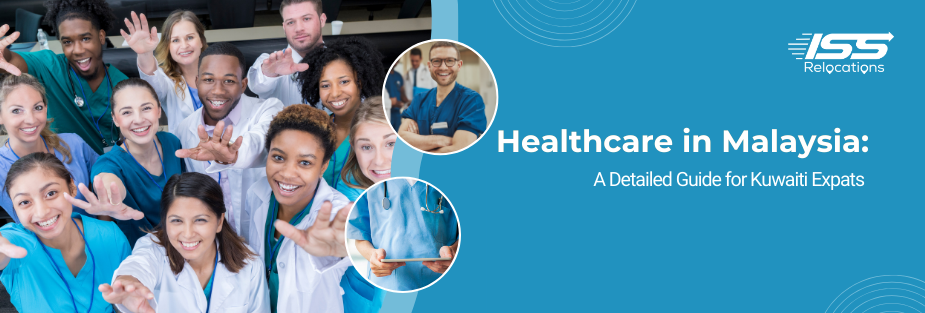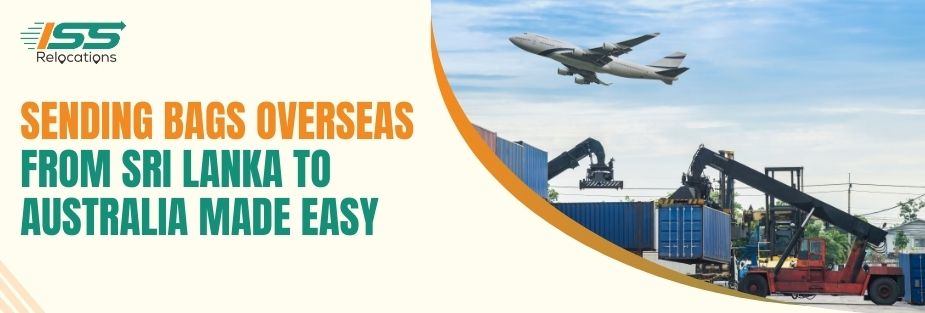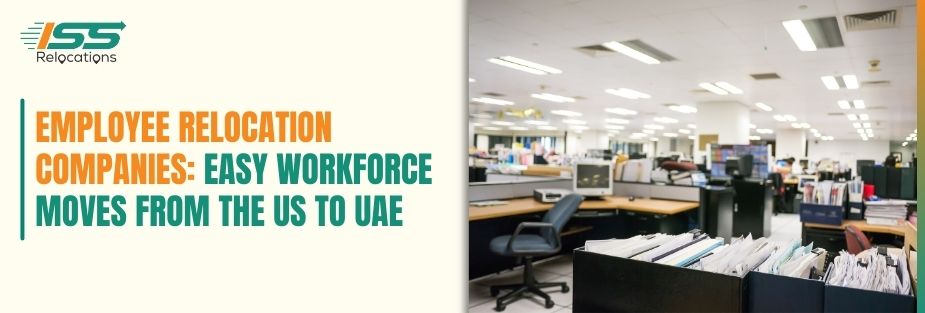
Healthcare in Malaysia: A Detailed Guide for Kuwaiti Expats
Relocating to a new country involves adjusting to a different healthcare system, and for Kuwaiti expats, understanding healthcare in Malaysia is crucial for a smooth transition. Malaysia is known for its world-class medical services, modern hospitals, and highly qualified doctors. Whether an expat requires routine medical checkups, emergency care, or specialized treatments, the country offers a comprehensive healthcare network that caters to both locals and foreigners.
Kuwaiti expats moving to Malaysia should familiarize themselves with the differences between public and private healthcare, medical costs, insurance requirements, and accessibility to hospitals and clinics. This ensures that they receive the best possible medical care without unexpected financial burdens. With ISS Relocations assisting in the moving process, expats can focus on settling in and securing appropriate healthcare solutions.
An Overview of Healthcare in Malaysia
Malaysia offers one of the most advanced healthcare systems in Southeast Asia. The country’s medical infrastructure includes state-of-the-art facilities, highly skilled medical professionals, and internationally accredited hospitals. Healthcare in Malaysia is divided into public and private sectors, with both offering high-quality medical services. Kuwaiti expats must understand the differences between these two systems to make informed healthcare choices.
Expat Life in Malaysia
Plan Your Move with Expert Advice on Healthcare Services and Settling In
Public vs. Private Healthcare: What Expats Need to Know
Malaysia’s healthcare system consists of government-funded hospitals and private medical institutions. While both sectors maintain high medical standards, they differ in terms of cost, accessibility, and waiting times.
Public Healthcare in Malaysia
Government-run hospitals and clinics provide affordable medical services, making public healthcare in Malaysia highly accessible to residents. These hospitals are equipped with modern medical technology and staffed by experienced professionals. However, for expats, access to public healthcare is limited, and treatment may involve longer waiting periods.
Private Healthcare in Malaysia
Private hospitals in Malaysia are widely preferred by expats due to their shorter wait times, personalized medical services, and availability of English-speaking doctors. Many private hospitals have international accreditations, ensuring top-tier healthcare standards. Although private medical care is costlier than public healthcare in Malaysia, it remains affordable compared to many Western countries.
The Quality of Medical Services in Malaysia
Malaysia has gained global recognition for its high-quality medical services, attracting both expats and medical tourists. The country’s healthcare sector is known for advanced treatment methods, well-trained doctors, and efficient patient care.
Internationally Accredited Hospitals
Many private hospitals in Malaysia have been accredited by international healthcare organizations, guaranteeing world-class medical standards. Institutions such as Prince Court Medical Centre, Gleneagles Hospital, and Pantai Hospital are among the top choices for expats.
Highly Skilled Medical Professionals
Healthcare in Malaysia is delivered by highly qualified doctors and specialists, many of whom have received training from prestigious universities in the UK, US, and Australia. Most medical professionals in private hospitals are fluent in English, making communication easier for Kuwaiti expats.
Advanced Medical Technology
The Malaysian healthcare system continually invests in cutting-edge medical equipment and technology. Expats can access advanced treatments in cardiology, oncology, orthopedics, and cosmetic surgery. The use of modern diagnostic tools ensures accurate and efficient medical care.
Healthcare Costs in Malaysia for Kuwaiti Expats
Understanding medical expenses is essential for expats moving to Malaysia. While healthcare in Malaysia is relatively affordable compared to Western countries, costs vary depending on whether services are obtained from public or private institutions. Kuwaiti expats should be aware of potential expenses, out-of-pocket payments, and insurance coverage to manage their medical costs effectively.
Medical Expenses in Public vs. Private Hospitals
The cost of medical treatment in Malaysia depends on whether expats choose public or private healthcare services. Public hospitals offer subsidized rates, but expats usually pay higher fees than locals. Private hospitals, on the other hand, provide premium healthcare services at a fraction of the cost found in Kuwait or other Gulf countries.
Treatment Costs in Public Hospitals
Public healthcare in Malaysia is significantly subsidized for local citizens, but foreigners are required to pay full rates. A general consultation at a government clinic may cost around RM50 ($10), while more complex procedures, such as surgeries, may range from RM3,000 to RM10,000 ($640–$2,100), depending on the treatment.
Treatment Costs in Private Hospitals
Private hospitals in Malaysia charge higher fees, but they offer quicker access to medical specialists and superior facilities. A general consultation may cost RM100–RM250 ($21–$53), while major surgeries can range from RM15,000 to RM40,000 ($3,200–$8,500), depending on complexity. Despite the higher prices, the quality of care and efficiency make private healthcare a preferred choice for expats.
Out-of-Pocket Costs and Payment Methods
Kuwaiti expats should plan their healthcare budgets to avoid unexpected medical expenses. While medical costs in Malaysia are affordable compared to international standards, out-of-pocket payments can still be significant without adequate insurance coverage.
Budgeting for Medical Expenses
Expats without insurance coverage should set aside a healthcare budget for routine medical visits, specialist consultations, and emergency treatments. While general healthcare in Malaysia is reasonably priced, unexpected hospitalizations or surgical procedures can be costly.
Payment Methods and Insurance Billing
Private hospitals in Malaysia accept multiple payment methods, including cash, credit cards, and digital payments. Many hospitals also offer direct billing options for expats with international health insurance, making transactions more convenient. Kuwaiti expats should ensure their insurance provider is accepted by major hospitals to avoid upfront medical payments.
By understanding the structure, quality, and costs of healthcare in Malaysia, Kuwaiti expats can make informed medical decisions. Whether choosing public or private healthcare services, securing adequate insurance, or planning for medical expenses, expats can access world-class.
Health Insurance for Expats in Malaysia
Navigating healthcare in Malaysia requires a solid understanding of health insurance options for expats. While the country offers high-quality medical care at competitive rates, having comprehensive health coverage ensures financial security and access to the best medical facilities. Kuwaiti expats should familiarize themselves with insurance requirements, available plans, and key factors when selecting the right coverage.
Is Health Insurance Mandatory for Expats?
Health insurance is not legally required for all expats in Malaysia, but having coverage is strongly recommended. While long-term residents and employment pass holders may receive employer-sponsored insurance, self-funded expats and retirees must arrange their own policies.
Medical Insurance for Residency Applications
Expats applying for long-term residency or the Malaysia My Second Home (MM2H) visa must provide proof of medical insurance. This requirement ensures that foreign residents can cover medical expenses without burdening the public healthcare system.
Consequences of Not Having Insurance
Without insurance, expats must pay out-of-pocket for medical services. While healthcare in Malaysia is more affordable than in many Western countries, unexpected hospitalization or specialized treatments can lead to significant expenses. Having an insurance plan protects expats from financial strain and ensures uninterrupted medical care.
Best Health Insurance Options for Kuwaiti Expats
Kuwaiti expats have access to a variety of insurance plans, ranging from local providers to international health coverage. Choosing the right policy depends on individual healthcare needs, budget, and hospital preferences.
International vs. Local Insurance Plans
International health insurance offers extensive coverage, including treatment in Malaysia and medical care in other countries. These plans are ideal for expats who travel frequently or require access to healthcare in multiple locations. Local insurance plans, on the other hand, provide coverage limited to Malaysia, often at more affordable premiums.
Coverage for Hospitalization and Outpatient Services
A good insurance plan should cover hospitalization, outpatient treatments, emergency care, and specialist consultations. Some policies also include dental and maternity coverage, ensuring comprehensive healthcare in Malaysia for Kuwaiti families. Expats should carefully review their policy details to ensure coverage aligns with their medical needs.
How to Choose the Right Insurance Plan
When selecting an insurance policy, expats should consider hospital networks, premium costs, claim processes, and coverage limits. Choosing a plan accepted by major private hospitals ensures smooth access to medical services. Expats should also verify whether their policy includes direct billing to avoid upfront payments.
Call Our Experts Today
Accessing Medical Services in Malaysia
Kuwaiti expats living in Malaysia must know how to navigate the country’s healthcare system, from finding a doctor to accessing emergency medical services. Healthcare in Malaysia is highly organized, with hospitals and clinics offering various ways to book appointments and receive treatment. Understanding how to access medical care ensures expats receive prompt and efficient healthcare whenever needed.
Finding a Doctor or Specialist
Malaysia has an extensive network of general practitioners and specialists catering to diverse medical needs. Expats can choose between public health clinics, private hospitals, and specialty medical centers.
General Practitioners for Primary Care
For routine medical checkups or minor health issues, expats can visit general practitioners (GPs) at private clinics or government health centers. Many private clinics offer walk-in consultations, while government clinics may require prior registration.
Specialists and Referrals
Expats seeking specialized treatment can directly visit private hospital specialists or get referrals from general practitioners. Many specialists in Malaysia have international training, ensuring high medical standards. Booking an appointment with a specialist in private hospitals is usually straightforward, with online and phone booking options available.
Emergency Medical Services and Pharmacies
Expats must be aware of emergency healthcare services and how to obtain medications. Healthcare in Malaysia includes well-equipped emergency response teams and easily accessible pharmacies.
Emergency Numbers and Ambulance Services
Malaysia has a well-established emergency medical response system. Expats can dial 999 for public ambulance services or contact private hospitals directly for quicker emergency assistance. Private ambulance services typically respond faster but may involve higher fees.
Pharmacies and Access to Medications
Pharmacies are widely available in Malaysia, offering prescription and over-the-counter medications. Many international pharmaceutical brands are available, ensuring expats can find familiar medicines. While minor medications can be purchased without prescriptions, controlled drugs require a doctor’s prescription. Expats should also check medication regulations before bringing prescription drugs into Malaysia.
Maternity and Pediatric Care in Malaysia
For Kuwaiti families relocating to Malaysia, understanding maternity and pediatric healthcare services is essential. Healthcare in Malaysia provides excellent maternal and child care, with modern hospitals and experienced medical professionals ensuring safe pregnancies and comprehensive pediatric treatments.
Giving Birth in Malaysia: What Expats Should Expect
Malaysia is a preferred destination for maternity care due to its high medical standards, experienced obstetricians, and affordable delivery costs. Expats can choose between government maternity hospitals and private maternity wards, depending on their budget and preferred level of care.
Maternity Services in Public Hospitals
Public hospitals offer affordable maternity services with well-equipped delivery rooms and skilled medical teams. However, waiting times may be longer, and expats may have limited options in selecting preferred doctors.
Maternity Services in Private Hospitals
Many expats opt for private hospitals for personalized maternity care, shorter waiting times, and comfortable hospital stays. Private maternity packages include prenatal checkups, delivery, and postnatal care. Costs vary based on hospital choice and type of delivery, but overall, maternity healthcare in Malaysia remains more affordable than in many Western countries.
Pediatric Healthcare for Kuwaiti Families
Malaysia offers excellent pediatric care, ensuring children receive proper medical attention from birth through adolescence. Kuwaiti families can access pediatricians, vaccination programs, and specialized child healthcare services with ease.
Vaccination and Child Wellness Programs
The Malaysian government provides a structured vaccination schedule for children, covering essential immunizations such as hepatitis, polio, and measles. Private hospitals and clinics also offer additional vaccines based on international recommendations. Expats should ensure their children follow the recommended immunization program.
Finding Pediatric Specialists
Private hospitals and specialty medical centers in Malaysia offer pediatric services, including general child health checkups, developmental assessments, and treatment for common childhood illnesses. Many pediatricians are fluent in English, ensuring smooth communication for Kuwaiti expat families.
Can Kuwaiti Expats Use Malaysia’s Public Healthcare?
Kuwaiti expats relocating to Malaysia must understand the accessibility of public healthcare services. While healthcare in Malaysia offers high-quality medical treatment, the public healthcare system primarily serves Malaysian citizens. Expats can still access public hospitals and clinics, but eligibility, costs, and priority levels vary compared to local residents.
Eligibility for Expats in Public Hospitals
Public healthcare in Malaysia is heavily subsidized by the government, making it highly affordable for locals. However, expats are not entitled to these subsidies and must pay full medical fees. While public hospitals accept foreign patients, locals receive priority treatment, often leading to longer waiting times for expats.
Who Can Access Public Healthcare?
Foreigners holding work permits, student visas, or long-term residency passes can receive treatment at government hospitals and clinics. However, they must register as non-Malaysian patients and are subject to different fee structures. Certain government health programs, such as vaccination campaigns and emergency medical care, may also be available to expats.
Cost Differences for Expats
While healthcare in Malaysia is known for being cost-effective, expats using public hospitals will pay higher fees than locals. A routine consultation at a public hospital may cost an expat RM40–RM80 ($8–$17), while a specialist appointment can range from RM100–RM300 ($21–$64). Despite higher costs for foreigners, public healthcare remains more affordable than private hospitals.
When Expats Should Consider Public Healthcare
Although many expats prefer private hospitals, there are instances where public healthcare in Malaysia may be beneficial. Expats should consider public healthcare for certain medical needs, provided they are willing to handle potential wait times and limited service flexibility.
Emergency Medical Services
Public hospitals have well-equipped emergency departments that offer 24/7 care. Expats experiencing medical emergencies can visit government hospitals for urgent treatment, though priority is given to Malaysian citizens. Those in critical condition receive immediate care regardless of nationality.
Specialized Treatments at Teaching Hospitals
Some of Malaysia’s top teaching hospitals, such as Universiti Malaya Medical Centre (UMMC) and Hospital Kuala Lumpur, offer specialized treatments at lower costs than private hospitals. Expats seeking advanced medical care at affordable rates may consider these institutions.
Common Health Concerns for Expats in Malaysia
Moving to a new country presents health challenges, and Kuwaiti expats in Malaysia should be aware of common medical issues. Healthcare in Malaysia effectively manages tropical diseases, climate-related health conditions, and food safety concerns, but expats must take precautions to maintain their well-being.
Climate-Related Health Issues
Malaysia’s hot and humid climate can affect expats unaccustomed to tropical weather. The combination of high temperatures and humidity increases the risk of dehydration, heat exhaustion, and respiratory conditions.
Adapting to Humidity and Heat
Kuwaiti expats moving to Malaysia may struggle with high humidity levels. Staying hydrated, wearing breathable clothing, and avoiding prolonged sun exposure help prevent heat-related illnesses. Air-conditioned environments can also reduce discomfort caused by extreme humidity.
Respiratory and Allergy Concerns
The tropical climate and urban pollution may trigger respiratory issues, particularly for individuals with asthma or allergies. Seasonal haze from forest fires can lead to poor air quality, causing throat irritation, coughing, and breathing difficulties. Expats with pre-existing respiratory conditions should consult a doctor for preventive measures.
Common Tropical Diseases
Although Malaysia has an efficient healthcare system, certain tropical diseases are more prevalent in the region. Expats must take precautions to avoid infections such as dengue fever and foodborne illnesses.
Dengue Fever and Mosquito-Borne Diseases
Dengue fever is common in Malaysia, particularly during the rainy season. The disease spreads through mosquito bites and causes high fever, severe body pain, and fatigue. Expats should use insect repellent, wear long clothing, and avoid stagnant water areas to minimize the risk of mosquito bites.
Food and Water Safety
Healthcare in Malaysia includes strict food safety regulations, but expats should still exercise caution when consuming street food or tap water. Drinking bottled or filtered water and eating from hygienic food establishments help prevent foodborne illnesses. Some expats may experience mild digestive issues when adjusting to local cuisine, but these symptoms usually subside over time.
Recommended Vaccinations for Expats
Kuwaiti expats moving to Malaysia should ensure they are up to date on essential vaccinations. While routine vaccines such as measles, hepatitis, and influenza are recommended, additional vaccines may be necessary depending on the region of residence.
Essential Vaccines Before Relocation
Expats should receive vaccinations for hepatitis A and B, typhoid, and tetanus before moving to Malaysia. These prevent common infectious diseases that may be more prevalent in tropical regions. Certain vaccines, such as Japanese encephalitis, may be recommended for expats living in rural areas.
Annual Flu Shots and Preventive Healthcare
Seasonal influenza is common in Malaysia due to year-round humidity. Getting an annual flu vaccine helps prevent infections, particularly for expats frequently exposed to crowded environments. Regular health checkups at private hospitals ensure that expats maintain good health while adapting to life in Malaysia.
Medical Tourism in Malaysia: An Added Advantage for Expats
Malaysia has become a leading destination for medical tourism, attracting thousands of international patients each year. The affordability and excellence of healthcare in Malaysia make it an attractive option for expats seeking specialized treatments, wellness procedures, or elective surgeries.
Why Malaysia is a Global Hub for Medical Tourism
Malaysia’s medical tourism industry continues to grow due to its modern hospitals, well-trained specialists, and cost-effective healthcare services. Expats residing in Malaysia can benefit from world-class treatments at significantly lower prices than in Western countries.
High-Quality Medical Facilities
Many private hospitals in Malaysia meet international standards, with certifications from organizations such as the Joint Commission International (JCI). These hospitals provide specialized treatments in cardiology, oncology, orthopedics, and cosmetic surgery.
Affordable Treatment Costs
Healthcare in Malaysia remains competitively priced, allowing expats to access premium medical services at a fraction of the cost found in Europe or the Gulf region. Treatments such as dental implants, cosmetic procedures, and fertility treatments are particularly popular among medical tourists.
Best Hospitals for Medical Tourism in Malaysia
Malaysia is home to several internationally recognized medical centers that cater to foreign patients. Expats can choose from top-rated hospitals offering specialized care and personalized medical services.
Prince Court Medical Centre
Located in Kuala Lumpur, Prince Court Medical Centre is renowned for its high-end medical services and advanced technology. It specializes in elective surgeries, dermatology, and cardiology treatments, attracting international patients seeking premium healthcare.
Gleneagles Hospital
With branches in multiple Malaysian cities, Gleneagles Hospital provides expert care in orthopedics, neurology, and cancer treatment. The hospital’s international patient services ensure seamless healthcare experiences for expats and medical tourists.
How Kuwaiti Expats Can Benefit from Medical Tourism
Kuwaiti expats living in Malaysia can take advantage of the country’s medical tourism sector by accessing high-quality treatments without traveling back home. The affordability of private healthcare in Malaysia allows expats to undergo advanced medical procedures without financial strain.
Wellness and Preventive Health Packages
Many private hospitals offer preventive health screening packages, allowing expats to monitor their overall health. These packages include full-body checkups, cardiovascular assessments, and lifestyle counseling.
Cosmetic and Elective Surgeries
Malaysia is a top destination for cosmetic and elective procedures, including plastic surgery, dental work, and LASIK eye surgery. Expats interested in enhancing their well-being can choose from a variety of cost-effective medical solutions.
Wrapping Up
Kuwaiti expats relocating to Malaysia can expect a well-developed medical system with modern hospitals, skilled healthcare professionals, and affordable medical services. Healthcare in Malaysia is divided into public and private sectors, with expats often opting for private hospitals due to shorter wait times and personalized care. Understanding the differences between these systems allows expats to make informed healthcare decisions.
The Importance of Health Insurance
While Malaysia does not mandate health insurance for all expats, having a comprehensive policy ensures financial security and access to top-tier medical services. International and local insurance plans offer varying levels of coverage, with many expats choosing plans that include hospitalization, outpatient services, and specialist consultations. Without adequate coverage, out-of-pocket medical expenses can become a financial burden, especially in private hospitals.
Accessibility of Medical Services
Finding a doctor, accessing emergency services, and obtaining prescription medications are straightforward for expats in Malaysia. Private hospitals offer advanced treatment options with multilingual medical staff, ensuring seamless communication. Emergency services are well-equipped, and pharmacies provide a wide range of medications, including international brands. Understanding how to navigate the healthcare system ensures expats receive prompt and efficient medical care.
Preventive Healthcare and Wellness
Maintaining good health is essential for a comfortable life in Malaysia. Expats should be aware of climate-related health concerns, tropical diseases, and food safety measures. Regular health checkups, vaccinations, and preventive screenings help expats adapt to their new environment while minimizing health risks. Medical tourism also provides an added advantage, offering affordable elective procedures and specialized treatments.
How ISS Relocations Supports Expats
Moving to Malaysia requires careful planning, including securing proper healthcare arrangements. ISS Relocations assists Kuwaiti expats in making a smooth transition by handling logistics, visa processing, and relocation needs. With professional support, expats can focus on settling in while ensuring they have access to high-quality healthcare in Malaysia.
Plan Stress-free Move with Top Moving Company in UAE - ISS Relocations

Frequently Asked Questions
Is healthcare in Malaysia free for expats?
Healthcare in Malaysia is not free for expats. Public hospitals offer subsidized rates for Malaysian citizens, but foreigners must pay full treatment costs. Private hospitals provide high-quality medical services at affordable prices, though expats should have health insurance to manage expenses effectively.
Do Kuwaiti expats need health insurance to live in Malaysia?
Health insurance is not legally required for all expats, but it is highly recommended. Some visa categories, such as the Malaysia My Second Home (MM2H) program, require proof of medical insurance. Without coverage, expats must pay for medical services out of pocket, which can be costly for specialized treatments.
Are Malaysian doctors and hospitals expat-friendly?
Malaysia’s private hospitals are known for their expat-friendly services, with English-speaking doctors and internationally trained specialists. Many hospitals cater to international patients, ensuring a comfortable healthcare experience for foreigners. Public hospitals also offer quality care, though wait times may be longer.
What are the best private hospitals in Malaysia for expats?
Some of the top private hospitals in Malaysia include Prince Court Medical Centre, Gleneagles Hospital, Pantai Hospital, and KPJ Healthcare facilities. These hospitals are internationally accredited and provide advanced medical treatments with excellent patient care.
How much does a doctor’s consultation cost in Malaysia?
The cost of a doctor’s consultation in Malaysia varies between public and private hospitals. In public hospitals, a general consultation may cost RM40–RM80 ($8–$17), while private hospitals charge RM100–RM250 ($21–$53) for a specialist appointment. Prices depend on the hospital and type of treatment required.
Can expats access emergency medical services easily?
Emergency medical services in Malaysia are well-developed, with public and private hospitals offering 24/7 emergency care. Expats can call 999 for government ambulance services or contact private hospitals for faster response times. Private ambulances typically charge a fee but offer quicker transportation.
What vaccinations are recommended for expats moving to Malaysia?
Expats moving to Malaysia should be vaccinated against hepatitis A and B, typhoid, tetanus, and influenza. Those living in rural areas may also require vaccinations for Japanese encephalitis. Regular flu shots and preventive healthcare measures help expats stay healthy in their new environment.
Moving Company - Recent Blog
Stay informed and prepared for your next move with our latest blogs on moving services in the UAE. From expert packing tips to international relocation guides, ISS Relocations brings you up-to-date insights to make your moving experience smoother, safer, and stress-free.










